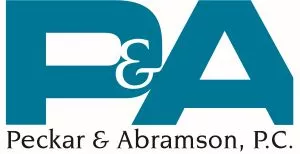U.S. Department Of Justice And Other Federal Agencies Have Recently Launched A Broad, New Initiative To Investigate And Prosecute Government Contractors’ Procurement Fraud
On October 10, 2006, U.S. Deputy Attorney General Paul J. McNulty announced "a new national procurement fraud initiative" to promote the early detection, prevention and prosecution of procurement fraud. This initiative will be implemented by the National Procurement Fraud Task Force established by the Justice Department Criminal Division in partnership with U.S. Attorneys’ Offices, the Justice Department’s Civil Division and other federal law enforcement agencies. Virtually all federal agencies will be actively involved.
This broad, new initiative should encourage all contractors with federal contracts or federally funded contracts to heighten their management oversight and to become even more conscious of the critical importance of having an effective program in place that ensures compliance with all requirements of federal law, the Federal Acquisition Regulations (FAR) and other federal contracting requirements. This initiative should also encourage companies not familiar with the strict requirements of federal government contracting to assess the wisdom of engaging in such projects until their expertise is established and a compliance program is put in place.
In announcing this new initiative, U.S. Deputy Attorney General McNulty stated: "Procurement fraud cheats American taxpayers and harms the government's efforts to obtain the goods and services needed for its mission. At a time of heightened concern for our nation's security, every tax dollar is precious. We simply cannot tolerate fraud and abuse in government contracting. This task force is modeled after the department's highly successful efforts in combating fraud in the aftermath of Hurricane Katrina and an effort I initiated in the U.S. Attorney's Office in the Eastern District of Virginia."
The task force is so new that its exact charter is unknown. However, the Justice Department has signaled that one of the keystones of this initiative will be closer coordination between agency auditors and federal investigators. The message seems to be that auditors will be trained and encouraged to identify the "red flags" of fraud in the course of performing contractor audits. Interestingly, the Justice Department has also stated that this initiative will "focus" resources at all levels of government." This may signal cooperation at the state and local level as well as the federal level.
The task force’s spotlight will be cast on the entire range of contractor activities, including:
- defective pricing or "other irregularities in the pricing and formation of contracts"
- product substitution (i.e., delivering a product that does not conform with the plans and specifications),
- misuse of procurement sensitive information (for example, improperly obtaining information about competitors’ proposals)
- false claims
- labor mischarging
- accounting fraud
- ethics and conflict of interest violations, and
- public corruption associated with procurement fraud
The task force’s priorities will include determining whether existing laws need to be strengthened and whether adequate resources are available to successfully investigate and prosecute procurement fraud cases. Other priorities reflect a concerted effort to enhance the coordination and cooperation between agency auditors and federal investigators:
- better coordination between agency auditors and investigators to ensure that red flags and badges of fraud are promptly reported to criminal investigators for follow-up investigation; and
- better identification and resolution of investigative and coordination issues as they arise in joint cases (e.g., audit support and expanded efforts to share information);
- specialized training for Office of Inspector General (OIG) agents and auditors on the development and prosecution of procurement fraud cases.
Not surprisingly, the task force’s goal is the "development of strategies encouraging agencies to refer more cases for civil and criminal prosecution." This is to be accomplished through "better coordination of targeted civil, regulatory and criminal enforcement actions."
THE BOTTOM LINE: The world of contracting with the federal government or with owners whose projects are federally funded, already sufficiently complex and challenging, has become more perilous. Even inadvertent errors in a contractor’s pricing and billing practices could attract the interest of federal auditors and investigators. While all contractors with the Department of Defense must have a compliance program (the sophistication of the program depends upon the size of the company and "the extent of their involvement in Government contracting," DFARS 203.7000(1)), most other agencies do not specifically require that such a program be in place—but they do nonetheless require compliance. Absent such a program, government contractors are at risk of having the government identify improper practices and mistakes that could be detected by a compliance program, with civil litigation and/or criminal prosecution as possible results. Having an effective compliance program in place not only reduces the potential for future problems, it is also a mitigating factor in the eyes of federal investigators and prosecutors if problems do develop. Thus, the bottom line is that the best insurance against future problems is a properly structured, effective compliance program.
If you wish to learn more about compliance programs and government contract compliance issues, please contact: William ("Tom") Thompson at our Washington, D.C., office.
The content of this article is intended to provide a general guide to the subject matter. Specialist advice should be sought about your specific circumstances.


